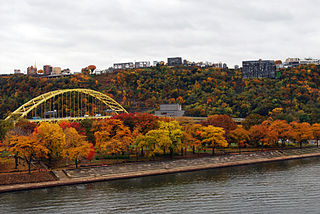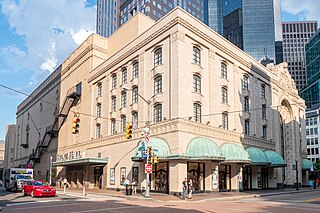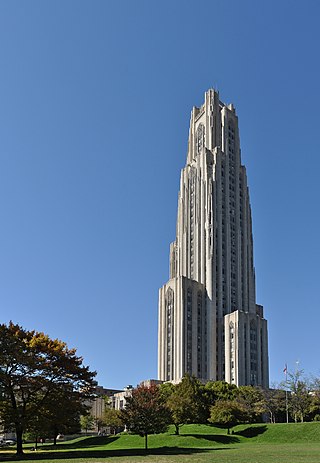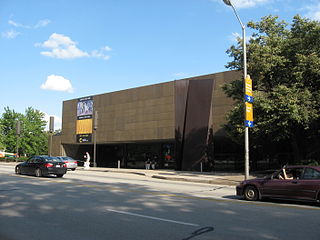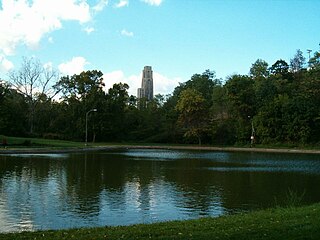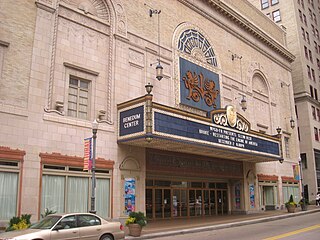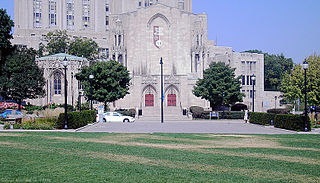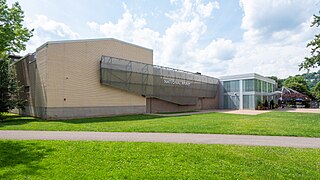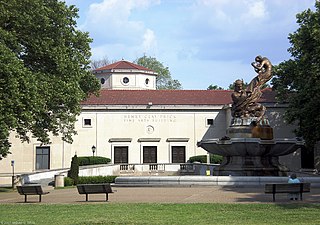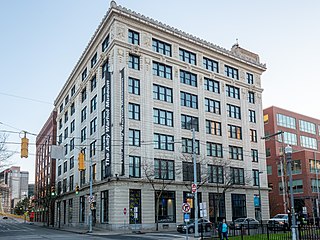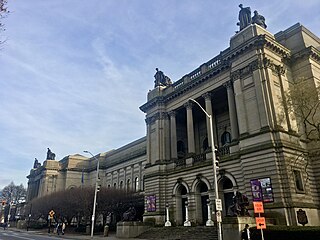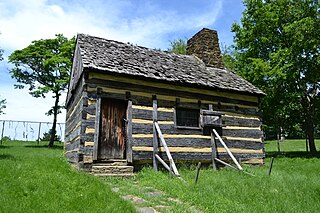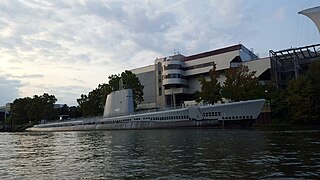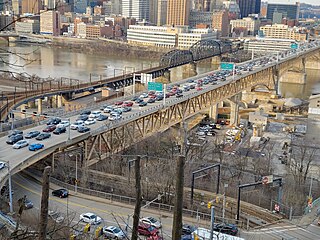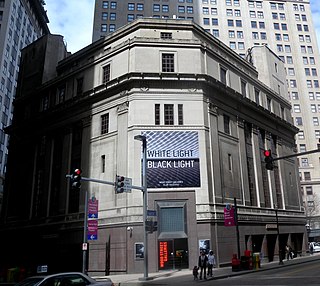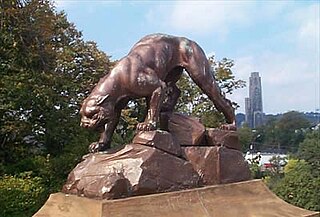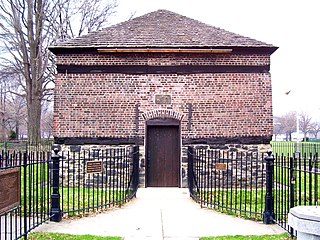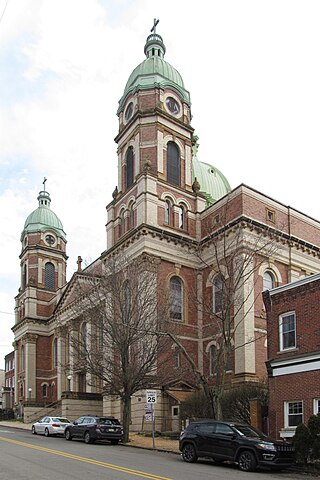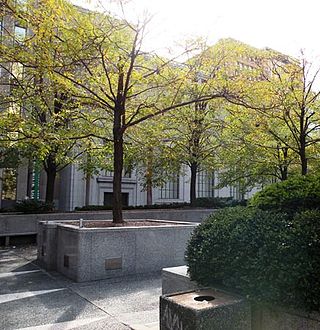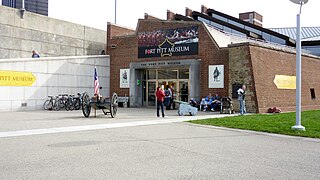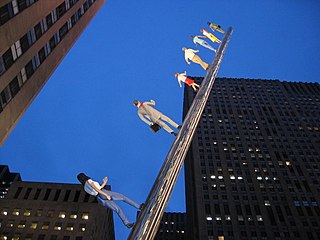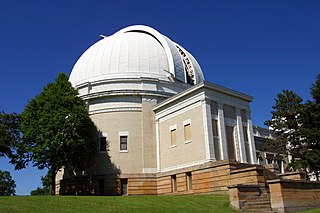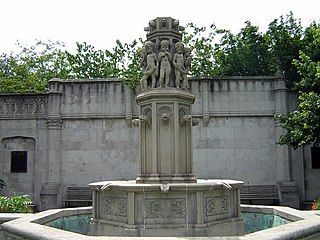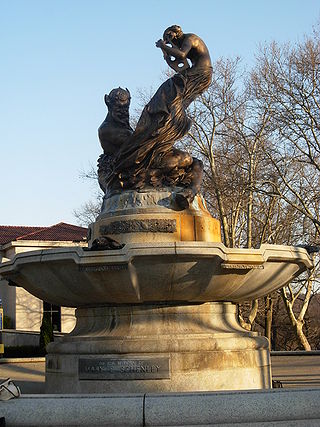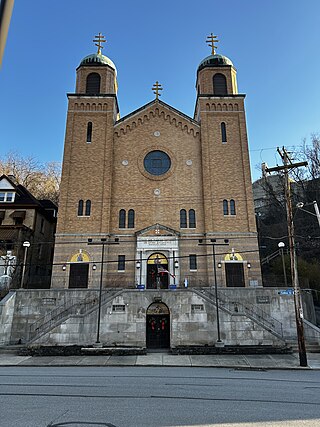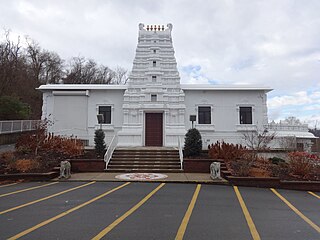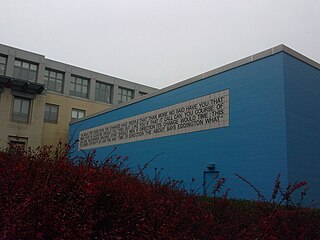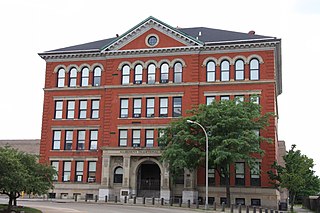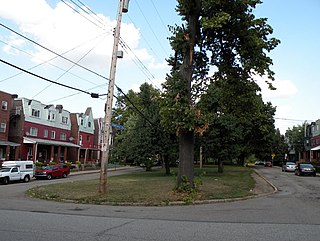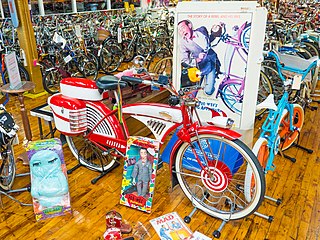37 Sights in Pittsburgh, United States (with Map and Images)
Legend
Welcome to your journey through the most beautiful sights in Pittsburgh, United States! Whether you want to discover the city's historical treasures or experience its modern highlights, you'll find everything your heart desires here. Be inspired by our selection and plan your unforgettable adventure in Pittsburgh. Dive into the diversity of this fascinating city and discover everything it has to offer.
Sightseeing Tours in PittsburghActivities in PittsburghPoint State Park is a Pennsylvania state park which is located on 36 acres (150,000 m2) in Downtown Pittsburgh, Allegheny County, Pennsylvania, USA, at the confluence of the Allegheny and Monongahela rivers, forming the Ohio River.
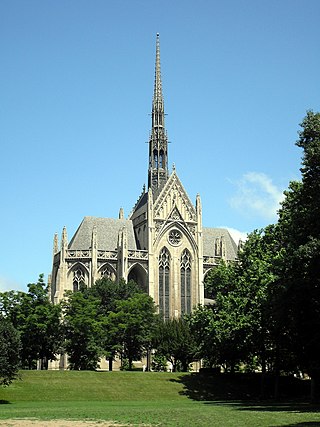
Heinz Memorial Chapel is a Pittsburgh History and Landmarks Foundation Historic Landmark and a contributing property to the Schenley Farms National Historic District on the campus of the University of Pittsburgh in Pittsburgh, Pennsylvania, United States.
Heinz Hall is a performing arts center and concert hall located at 600 Penn Avenue in the Cultural District of Pittsburgh, Pennsylvania. Home to the Pittsburgh Symphony Orchestra (PSO) and the Pittsburgh Youth Symphony Orchestra, the 2,676 seat hall presents about 200 performances each year. Originally built in 1927 as Loew's Penn Theatre, the former movie palace was renovated and reopened as Heinz Hall in 1971.
4. Cathedral of Learning
The Cathedral of Learning is a 42-story skyscraper that serves as the centerpiece of the University of Pittsburgh's (Pitt) main campus in the Oakland neighborhood of Pittsburgh, Pennsylvania. Standing at 535 feet (163 m), the 42-story Late Gothic Revival Cathedral is the tallest educational building in the Western Hemisphere and the second-tallest university building in the world, after the main building of Moscow State University. It is also the second-tallest gothic-styled building in the world, after the Woolworth Building in Manhattan. The Cathedral of Learning was commissioned in 1921 and ground was broken in 1926 under general contractor Stone & Webster. The first class was held in the building in 1931 and its exterior finished in October 1934, prior to its formal dedication in June 1937. It is a Pittsburgh landmark listed in the National Register of Historic Places.
5. Pittsburgh Zoo & Aquarium
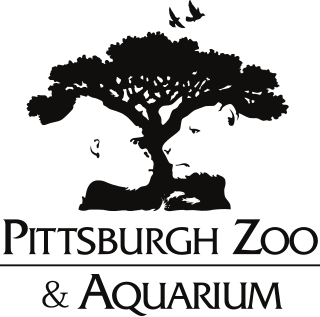
The Pittsburgh Zoo & Aquarium is a zoo and aquarium in the United States, one of only six major zoo and aquarium hybrids in the United States. Located in Pittsburgh, Pennsylvania's Highland Park, the zoo sits on 77 acres (31 ha) of park land where it exhibits more than 4,000 animals representing 475 species, including 20 threatened or endangered species.
Wikipedia: Pittsburgh Zoo & Aquarium (EN), Website, Opening Hours
6. Nationality Rooms
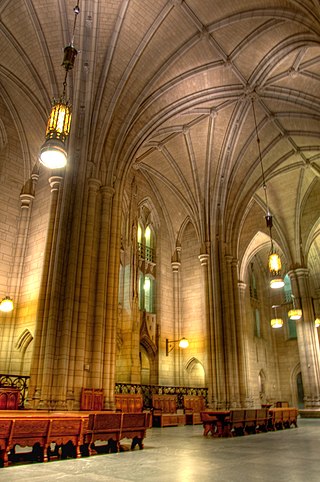
The Nationality Rooms are a group of 31 classrooms in the University of Pittsburgh's Cathedral of Learning depicting and donated by the national and ethnic groups that helped build the city of Pittsburgh. The rooms are designated as a Pittsburgh History and Landmarks Foundation historical landmark and are located on the 1st and 3rd floors of the Cathedral of Learning, itself a national historic landmark, on the University of Pittsburgh's main campus in the Oakland neighborhood of Pittsburgh, Pennsylvania, United States. Although of museum caliber, 29 of the 31 rooms are used as daily classrooms by University of Pittsburgh faculty and students, while the other two are display rooms viewed through glass doors, utilized primarily for special events, and can only be explored via special guided tour. The Nationality Rooms also serve in a vigorous program of intercultural involvement and exchange in which the original organizing committees for the rooms remain as participants and which includes a program of annual student scholarship to facilitate study abroad. In addition, the Nationality Rooms inspire lectures, seminars, concerts exhibitions, and social events which focus on the various heritages and traditions of the nations represented. The national, traditional, and religious holidays of the nations represented are celebrated on campus and the rooms are appropriately decorated to reflect these occasions. The Nationality Rooms are available daily for public tours as long as the particular room is not being used for a class or other university function.
7. Carnegie Museum of Art
The Carnegie Museum of Art is an art museum in the Oakland neighborhood of Pittsburgh, Pennsylvania. The museum was originally known as the Department of Fine Arts, Carnegie Institute and was formerly located at what is now the Main Branch of the Carnegie Library of Pittsburgh. The museum's first gallery was opened for public use on November 5, 1895. Over the years, the gallery vastly increased in size, with a new building on Forbes Avenue built in 1907. In 1963, the name was officially changed to Museum of Art, Carnegie Institute. The size of the gallery has tripled over time, and it was officially renamed in 1986 to "Carnegie Museum of Art" to indicate it clearly as one of the four Carnegie Museums.
8. Allegheny Observatory
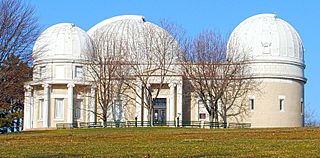
The Allegheny Observatory is an American astronomical research institution, a part of the Department of Physics and Astronomy at the University of Pittsburgh. The facility is listed on the National Register of Historic Places and is designated as a Pennsylvania state and Pittsburgh History and Landmarks Foundation historic landmark.
9. Schenley Park
Schenley Park is a large municipal park in Pittsburgh, Pennsylvania, United States. It is located between the neighborhoods of Oakland, Greenfield, and Squirrel Hill. It is also listed on the National Register of Historic Places as a historic district. In 2011, the park was named one of "America's Coolest City Parks" by Travel + Leisure.
10. Benedum Center
The Benedum Center for the Performing Arts is a theater and concert hall located at 237 7th Street in the Cultural District of Pittsburgh, Pennsylvania. Designed by the Philadelphia architectural firm Hoffman-Henon, it was built in 1928 as the Stanley Theatre. The former movie palace was renovated and reopened as the Benedum Center for the Performing Arts in 1987.
11. William Pitt Union
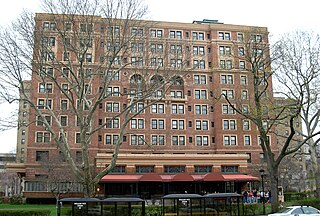
The William Pitt Union, which was built in 1898 as the Hotel Schenley, is the student union building of the University of Pittsburgh main campus, and is a Pennsylvania and Pittsburgh History and Landmarks Foundation Historic Landmark.
12. Stephen Foster Memorial
The Stephen Collins Foster Memorial is a performing arts center and museum which houses the Stephen Foster Archives at the University of Pittsburgh in Pittsburgh, Pennsylvania, USA. It is dedicated to the life and works of American songwriter Stephen Foster.
13. National Aviary
The National Aviary, located in Pittsburgh, Pennsylvania, is the only independent indoor nonprofit aviary in the United States. It is also the country's largest aviary, and the only one accorded honorary "National" status by the United States Congress.
14. Nicholas Lochoff Cloister
The Henry Clay Frick Fine Arts Building is a landmark Renaissance villa and a contributing property to the Schenley Farms-Oakland Civic Historic District on the campus of the University of Pittsburgh in Pittsburgh, Pennsylvania, United States. The Frick Fine Arts Building sits on the southern edge of Schenley Plaza, opposite The Carnegie Institute, and is the home of Pitt's History of Art and Architecture Department, Studio Arts Department, and the Frick Fine Arts Library. Before its front steps is Mary Schenley Memorial Fountain.
15. The Frick Pittsburgh
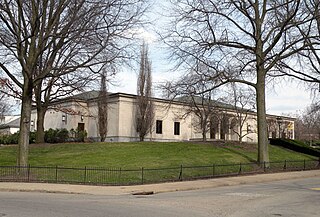
The Frick Pittsburgh is a cluster of museums and historical buildings located in Pittsburgh, Pennsylvania, United States, and formed around the Frick family's nineteenth-century residence known as "Clayton". It focuses on the interpretation of the life and times of Henry Clay Frick (1849–1919), industrialist and art collector.
16. The Andy Warhol Museum
The Andy Warhol Museum is located on the North Shore of Pittsburgh, Pennsylvania, in the United States. It is the largest museum in North America dedicated to a single artist. The museum holds an extensive permanent collection of art and archives from the Pittsburgh-born pop art icon Andy Warhol.
17. Carnegie Museum of Natural History
The Carnegie Museum of Natural History is a natural history museum in the Oakland neighborhood of Pittsburgh, Pennsylvania. It was founded by Pittsburgh-based industrialist Andrew Carnegie in 1896. Housing some 22 million specimens, the museum features one of the most extensive paleontological and entomological collections in the world.
18. Neill Log House
The Neill Log House is a historic log cabin in Schenley Park in Pittsburgh, Pennsylvania, United States. It was built during the second half of the 18th century and has been most commonly attributed to Robert Neill (Neal), with an estimated construction date possibly anywhere from 1765 to 1795. This estimate is based on architectural evidence as well as the large increase in value of the land during Neill's period of ownership which would indicate he made substantial improvements. However, the earlier date of 1765 claimed in some sources, would associate the building with an earlier landowner, Ambrose Newton. In 2024, a dendrochronology study determined that the beam over the fireplace, believed to be original to the house's construction, was dated to be from 1795, which was the date that Robert Neal sold the cabin to John Reed. It is known by records that Robert Neal purchased the land in 1779 and sold the cabin and land in 1795. Extrapolation of the known dates of Robert Neal's purchase and date the property was sold and the large increase in value during Robert Neal's ownership indicating he made substantial improvements likely mean it may have been built by him between 1779-1794.
19. USS Requin
USS Requin (SS/SSR/AGSS/IXSS-481), a Tench-class submarine, was the only ship of the United States Navy to be named after the requin, French for shark. Since 1990 it has been a museum ship at the Carnegie Science Center in Pittsburgh, Pennsylvania.
20. Liberty Bridge
The Liberty Bridge, which was completed in 1928, connects downtown Pittsburgh, Pennsylvania, to the Liberty Tunnels and the South Hills neighborhoods beyond. It crosses the Monongahela River and intersects Interstate 579 at its northern terminus.
21. Wood Street Galleries
The Wood Street Galleries, a visual arts project of the Pittsburgh Cultural Trust, is an art gallery that is located in Downtown Pittsburgh, Pennsylvania. The gallery occupies the upper floors of the Max Azen company building, above the Wood Street light rail stop.
22. Millenium Panther
A panther is the animal that serves as the official mascot of the University of Pittsburgh and used as a nickname for both athletic teams as well as other organizations and affiliates of the university. The mascot is generally referred to as the Pittsburgh Panther or Pitt Panther, while the costumed panther mascot is also named "Roc". Up to 20 physical representations of panthers can be found in and around the university's campus and athletic facilities.
23. Fort Pitt Block House
The Fort Pitt Block House is a historic building in Point State Park in the city of Pittsburgh. It was constructed in 1764 as a redoubt of Fort Pitt, making it the oldest extant structure in Western Pennsylvania, as well as the "oldest authenticated structure west of the Allegheny Mountains".
24. Immaculate Heart of Mary
Immaculate Heart of Mary Church in Pittsburgh, referred to in Polish as Kościół Matki Boskiej, is a historic church of the Catholic Diocese of Pittsburgh. Located on Polish Hill in Pittsburgh, Pennsylvania, it is a prime example of the so-called 'Polish Cathedral' style of churches in both its opulence and grand scale. The church was designated a historic landmark by the Pittsburgh History and Landmarks Foundation in 1970.
Wikipedia: Immaculate Heart of Mary Church (Pittsburgh) (EN)
25. Mellon Square
Mellon Square is an urban park in Downtown Pittsburgh, Pennsylvania, United States. It is the first Modernist park built above a parking garage. With its distinctive black, white, and green geometric pavement, it is a prominent urban oasis and gathering spot in Downtown Pittsburgh.
26. Fort Pitt Museum
Fort Pitt Museum is an indoor/outdoor museum that is administered by the Senator John Heinz History Center in downtown Pittsburgh, Allegheny County, Pennsylvania in the United States. It is at the confluence of the Monongahela and Allegheny Rivers, where the Ohio River is formed. Fort Pitt Museum is surrounded by Point State Park, a Pennsylvania state park named for the geographically and historically significant point that is between the rivers. This piece of land was key to controlling the upper reaches of the Ohio River Valley and western Pennsylvania, before, during and after the French and Indian War as well as the American Revolution.
27. Walking to the Sky
Walking to the Sky is an outdoor sculpture by Jonathan Borofsky. The original was installed at Rockefeller Center in the fall of 2004 before being moved to the Nasher Sculpture Center in Dallas, Texas in 2005. A copy is installed on the campus of Carnegie Mellon University in Pittsburgh, Pennsylvania, United States. Another copy is installed in front of the Kiturami Homsys Co. building in Hwagok-dong, Gangseo-gu, Seoul, South Korea.
28. Riverview Park
Riverview Park is the fourth largest municipal park in Pittsburgh, Pennsylvania. The park is located four miles (6 km) north of Downtown in the neighborhood of Perry North and consists of 251 acres (1.02 km2).
29. Mellon Park
Mellon Park is a park in the Shadyside, Point Breeze, and Squirrel Hill neighborhoods of Pittsburgh, Pennsylvania, straddling both sides of Fifth Avenue, from approximately Shady Avenue to Penn Avenue, the western corner abutting Pittsburgh Center for the Arts building. The southern part of the park is home to the Walled Garden and the park holds events throughout the year. It is also home to several recreational facilities.
30. Mary Schenley Memorial Fountain
The Mary Schenley Memorial Fountain, also known as A Song to Nature, is a 1918 landmark public sculpture in bronze and granite by Victor David Brenner. It sits in Schenley Plaza at the entrance to Schenley Park and directly in front of the University of Pittsburgh's Frick Fine Arts Building in Pittsburgh, Pennsylvania, United States. The fountain is designated as a contributing property to the Schenley Farms Historic District.
31. Saint John Chrysostom Byzantine Catholic Church
St. John Chrysostom Byzantine Catholic Church is a Ruthenian Greek Catholic church in Pittsburgh, Pennsylvania, United States. It is located in the neighborhood of Four Mile Run, which is an isolated section of Greenfield at the bottom of Junction Hollow. Its address is 506 Saline Street.
Wikipedia: St. John Chrysostom Byzantine Catholic Church (EN), Website
32. Sri Venkateswara Temple
Sri Venkateswara Temple, Pittsburgh is a Hindu temple in Penn Hills, Pennsylvania. It is the oldest Hindu temple in the United States built by Indian immigrants. Constructed in the style of the Sri Venkateswara Temple in Tirupati, India, the temple is a pilgrimage site for Hindus in the Northeastern and Midwestern United States. It has been described as "the trend-setting South Indian temple in its celebration of expensive, time-consuming, and intricate rituals."
33. Kelly Strayhorn Theater
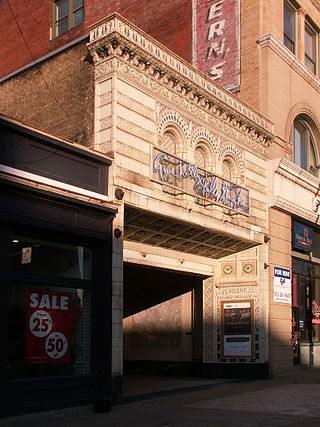
Kelly Strayhorn Theater is a performing arts center located at 5941 Penn Avenue in the East Liberty neighborhood of Pittsburgh, Pennsylvania. named in honor of Pittsburgh natives Gene Kelly and Billy Strayhorn.
34. Kraus Campo
Kraus Campo is a roof garden and landscape design space in Pittsburgh, Pennsylvania. It is located on the roof of the Posner Center on the Carnegie Mellon University campus, between the College of Fine Arts building and Posner Hall. The Campo was designed and created by artist Mel Bochner and landscape architect Michael Van Valkenburgh. The Campo consists of orange pathways surrounded by various species of shrubs, a central seating area, and a quotation tiled onto the back wall. It was commissioned by and named after Jill Gansman Kraus, a university trustee, and her husband Peter Kraus.
35. Allegheny Traditional Academy
Allegheny High School is a former high school in the Allegheny Center neighborhood of Pittsburgh, Pennsylvania. It opened in 1888 as the sole high school serving what was then the independent city of Allegheny. An annex was added in 1904 and the original 1888 building was replaced by a new Art-Deco-style structure in 1936. The surviving 1904 and 1936 buildings, which were designed by Frederick J. Osterling and Marion M. Steen respectively, were listed on the National Register of Historic Places in 1986.
36. Oakland Square Historic District
Oakland Square Historic District in the Central Oakland neighborhood of Pittsburgh, Pennsylvania, contains 99 properties. The core of the district surrounds Oakland Square, with the remaining properties along Parkview Avenue and Dawson Street. The neighborhood was conceived in the 1890s by developer Eugene O'Neill and were inspired by the urban design of Victorian England and Dublin. The district was added to the List of City of Pittsburgh historic designations on June 14, 2005.
37. Bicycle Heaven
Bicycle Heaven is the largest transportation museum in the world dedicated to bicycles. The museum was founded by Craig Morrow and comprises his personal collection gathered over decades. It is located in Pittsburgh, Pennsylvania.
Share
How likely are you to recommend us?
Disclaimer Please be aware of your surroundings and do not enter private property. We are not liable for any damages that occur during the tours.
